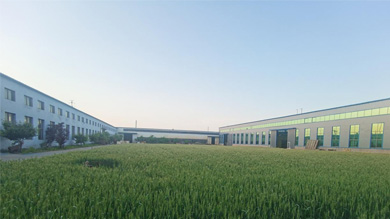Sep . 28, 2024 00:54 Back to list
Durable Ductile Iron Gate Valve for Reliable Fluid Control and System Efficiency
Understanding Ductile Iron Gate Valves Benefits and Applications
Ductile iron gate valves are an essential component in various piping systems, providing reliable flow control and isolation for fluids in both industrial and municipal applications. Constructed from a high-strength ductile iron material, these valves offer superior durability and performance compared to traditional cast iron valves. In this article, we will delve into the features, benefits, and common applications of ductile iron gate valves.
What is Ductile Iron?
Ductile iron, also known as nodular cast iron or spheroidal graphite iron, is a highly resilient material that exhibits excellent mechanical properties. The unique microstructure of ductile iron, characterized by the presence of spherical graphite nodules, lends the material significant strength, ductility, and impact resistance. This makes ductile iron an ideal choice for constructing heavy-duty components like gate valves, which must withstand varying pressure and temperature conditions in service.
Features of Ductile Iron Gate Valves
Ductile iron gate valves are designed with several key features that enhance their performance and longevity
1. Durability The inherent strength of ductile iron allows these valves to endure high-pressure environments and harsh working conditions without deformation or failure.
2. Corrosion Resistance Many ductile iron gate valves are coated with protective layers, such as epoxy or polyester, to prevent corrosion and extend their service life, especially in challenging environments.
3. Versatile Design These valves are available in various sizes, pressure ratings, and configurations, making them adaptable to a wide range of applications. They can accommodate different media, including water, sewage, and various chemicals.
4. Ease of Operation Ductile iron gate valves typically feature a simple, efficient design that allows for quick opening and closing. A wedge-shaped metal disc is used to control fluid flow, minimizing pressure loss.
ductile iron gate valve

Benefits of Ductile Iron Gate Valves
1. Cost-Effectiveness Although ductile iron gate valves may have a higher initial cost compared to standard cast iron valves, their durability and reduced maintenance needs lead to lower overall lifetime costs.
2. Reliability The robust construction leads to fewer failures and leaks, enhancing system reliability and reducing downtime.
3. Improved Flow Control Ductile iron gate valves are designed to provide unobstructed flow when fully open, ensuring minimal energy loss in the system.
Applications
Ductile iron gate valves are widely used in various sectors, including
- Water Treatment Plants For controlling water supply and distribution. - Wastewater Management To manage the flow of sewage in treatment facilities. - Oil and Gas Industry For isolating and controlling the flow of hydrocarbons in pipelines. - Fire Protection Systems To ensure reliable water flow for firefighting operations.
Conclusion
Ductile iron gate valves play a critical role in modern infrastructure, providing essential flow control and isolation solutions across numerous industries. With their durability, reliability, and cost-effectiveness, these valves are undoubtedly a preferred choice for engineers and system designers worldwide. As demands for efficient fluid management continue to rise, the importance of reliable components, such as ductile iron gate valves, will only increase, solidifying their role in engineering applications for years to come.
Share
-
Reliable Wafer Type Butterfly Valves for Every IndustryNewsJul.25,2025
-
Reliable Flow Control Begins with the Right Ball Check ValveNewsJul.25,2025
-
Precision Flow Control Starts with Quality ValvesNewsJul.25,2025
-
Industrial Flow Control ReliabilityNewsJul.25,2025
-
Engineered for Efficiency Gate Valves That Power Industrial PerformanceNewsJul.25,2025
-
Empowering Infrastructure Through Quality ManufacturingNewsJul.25,2025